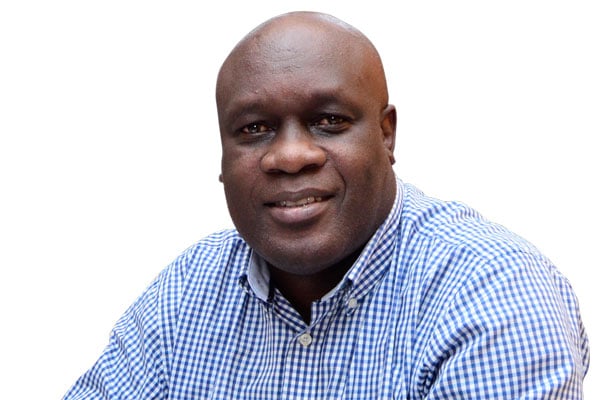When can journalists use secret cameras?

Author: Odoobo C. Bichachi is the Nation Media Group (NMG)-Uganda public editor. PHOTO/FILE.
What you need to know:
- Except in rare and justifiable cases, journalists should not tape anyone in the course of an interview without that person’s knowledge and agreement.
I spent part of the week in the eastern district of Soroti having a conversation with journalists in the region about accountability in journalism from the perspective of an ombudsman. This was part of a training session organised by the Media Council of Uganda.
Great conversations we had! One aspect that elicited a lot of interest that I wish to share here was the concept of “minimising harm” without shying away from important investigative stories of public interest. Particularly, we touched on the BBC Africa Eye investigative story “Stealing from the Sick” that led to one of the protagonists in the web of theft of medicine from public hospitals committing suicide after the secret recording exposed him.
Could the story have been told without losing one more life? What are the ethics that guide undercover journalism? When should journalists secretly record? Are they obliged to reveal to those they secretly recordedbefore publishing for an “on-the-record-view”?
Well, NMG Editorial Policy Guidelines do have a provision on secret recording of news subjects. It states thus: “Except in rare and justifiable cases, journalists should not tape anyone in the course of an interview without that person’s knowledge and agreement. An exception may be made only if the recording is necessary to protect the journalist in a legal action or for some other compelling reason such as coverage of public meetings and if other approaches don’t work. On the other hand, the use of recorders for interviews, speeches or at press conferences with the knowledge of the subject is encouraged to protect against error and to protect against possible charges of misquotation.”
The rare and justifiable cases may include undercover investigations of issues of great public interest. Still, this does not give journalists a blanket cover to record anyone and out them. In the quest to do a good story, journalists must also seek to minimise harm. So what does the BBC’s policy say about this?
“The subject to be secretly recorded should normally be the target of any investigation, against whom there is prima facie evidence of wrongdoing or intended wrongdoing. Any attempt to secretly record people who are not involved in committing the behaviour under investigation, especially vulnerable people or innocent victims of the behaviour, will need a strong public interest justification – the ends should justify the means.”
It adds: “It is not normally appropriate to use secret recording in an investigation simply for illustrative purposes… Throughout the editing process, it is important to ensure the finished programme reflects the evidence fairly and accurately, taking account the context in which any secretly recorded incidents took place… When the allegations to be made in the film have been identified, the right of reply process should be followed in accordance with the editorial guidelines.
Undercover journalism is exciting, dangerous and hugely revealing. It many times has unintended consequences and that may even elicit a public backlash if not well done and ethics adhered to. This danger was well captured in the Columbia Journalism Review, thus:
“Overreliance on sting operations and subterfuge can weaken the public’s trust in the media and compromise journalists’ claim to be truth-tellers.”
Investigative journalists therefore sometimes find themselves between a rock and a hard place with regard to what story they should tell and how they should tell it with minimal harm. The Society of Professional Journalists code of ethics has some caution: “journalists should ...avoid undercover or other surreptitious methods of gathering information unless traditional, open methods will not yield information vital to the public.”
So, secret recording should be used sparingly and when it is used, care should be taken to tell the story in a manner that minimises harm to the news subjects and sources.
*****
John Bosco Odongo: Your story, “How security will enforce inter-district transport ban” (Daily Monitor June 10) seems to imply that only public transport across districts is restricted. Is this really the case?
Public Editor: Thanks for this feedback. This was erroneous, the ban is for both public and private transport. The error arose out of the fact the story’s analysis was primarily focused on public transport. It shall be corrected for the record.
Send your feedback/complaints to
[email protected] or
call/text on +256 776 500725.




